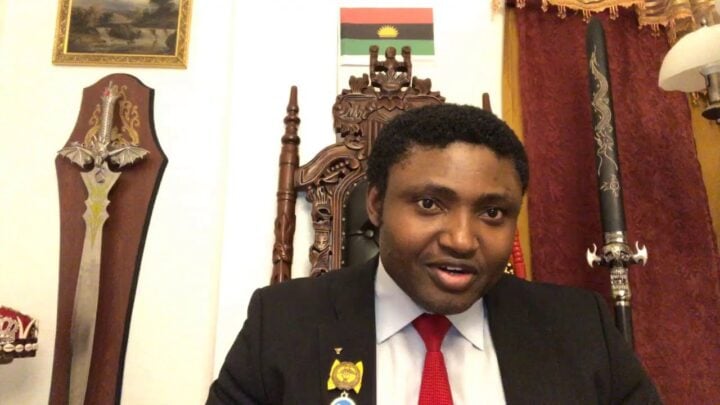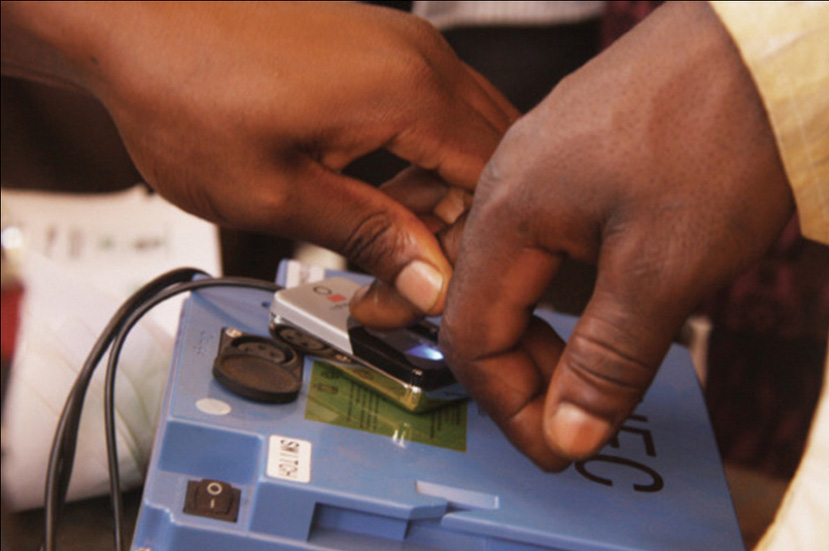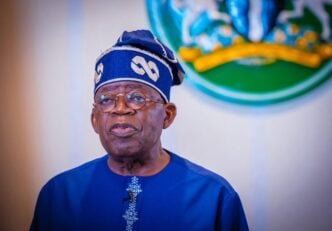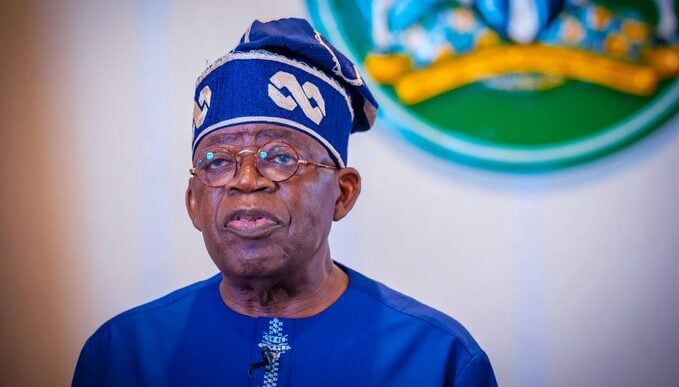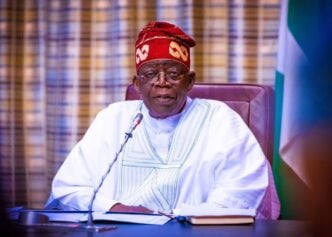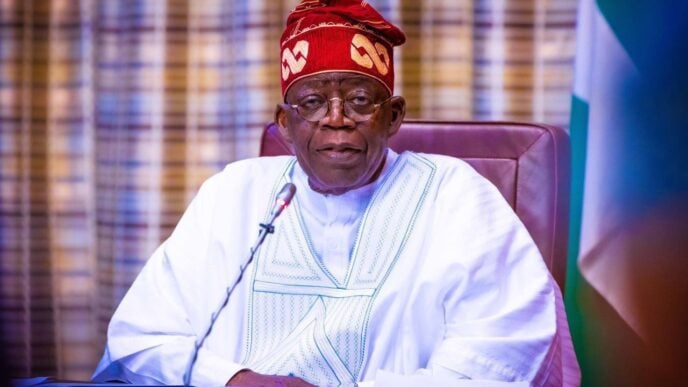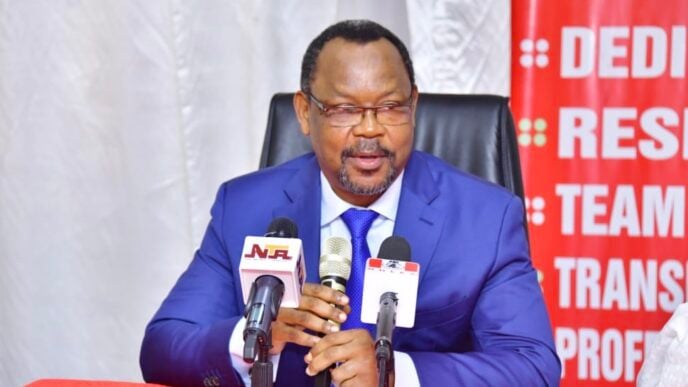Simon Ekpa
When a Finnish court handed Simon Ekpa a six-year sentence for terrorism crimes, the decision reverberated far beyond the courtroom in Päijät-Häme district.
The judgement sent ripples across Nigeria, a nation still bearing the scars of his actions. To the federal government, which holds him responsible for years of bloodshed in the south-east, it was nothing short of a “major victory” in the protracted battle against terrorism. For sympathisers who saw him as a leader, his sentencing is a setback for their quest for self-determination.
Ekpa, a Finnish-Nigerian activist who crowned himself “prime minister” of the “Biafra Government in Exile”, was accused of stoking unrest with his fiery broadcasts. His most infamous directive, the sit-at-home order, shut down businesses and classrooms, leaving communities in enforced silence.
SHADOW OF VIOLENCE
Advertisement
For years, the name Ekpa became synonymous with fear in towns, from Aba to Orlu. Each time he declared a sit-at-home or lockdown through his online channels, transporters, traders, and schoolchildren were forced indoors. Those who dared to defy his order often met terror.
At the height of the sit-at-home between 2021 and 2022, residents found themselves trapped between the bullets of armed groups. From the safety of distant Finland, Ekpa’s words carried no personal cost, yet the south-east bore the scars.
THE IPOB FACTOR
Advertisement
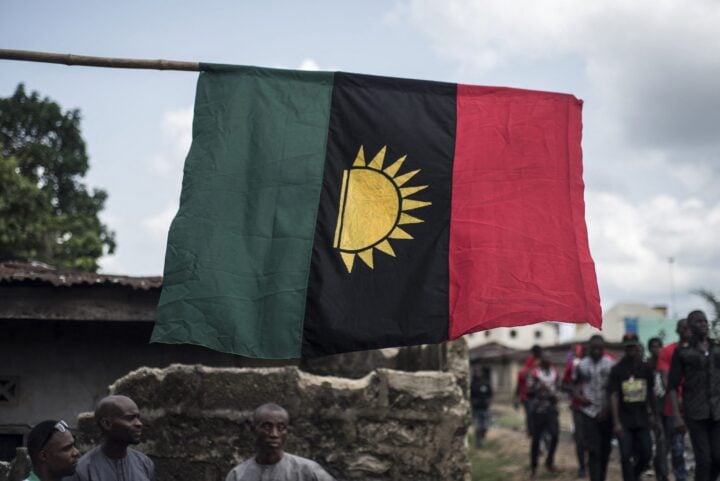
After Nnamdi Kanu, leader of the proscribed Indigenous People of Biafra (IPOB), was extradited from Kenya to Nigeria in June 2021, Ekpa rose to prominence as the lead voice on Radio Biafra. But within weeks, IPOB severed ties with Ekpa, accusing him of refusing to abide by the station’s rules of engagement.
That rupture marked the beginning of a bitter split. From his base in Finland, the lawyer carved out his own faction, styling himself as a separatist leader. Armed with a huge following on social media, including YouTube, he issued sit-at-home decrees that paralysed the south-east.
On several occasions, IPOB disowned Ekpa’s activities and directives.
By repeatedly distancing itself from Ekpa, IPOB sought to guard its international image, wary of being branded a terrorist group — a label that would further erode its quest for self-actualisation.
Advertisement
At the same time, Ekpa’s sway over the separatist movement was less the product of formal structures than of his mastery of digital platforms, where his broadcasts carried the weight of authority.
But for the victims, such distinctions meant little. What they lived through were the killings, the checkpoints, and the daily losses whenever one of his decrees spread online. It hardly mattered whether Ekpa was an IPOB member or not.
THE COST
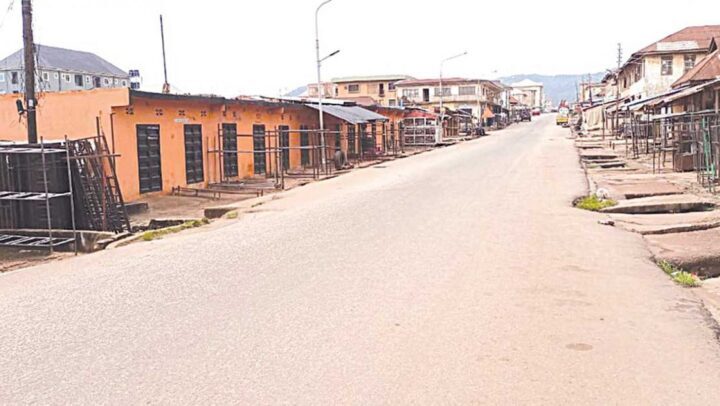
Between 2021 and 2025, the sit-at-home directives enforced by IPOB triggered widespread economic paralysis in Nigeria’s south-east, particularly on Mondays.
Advertisement
According to SBM Intelligence’s report titled ‘Four Years of Disruption’, the region lost an estimated N7.6 trillion over four years across key states, Abia, Anambra, Ebonyi, Enugu, and Imo, due to widespread market and business closures, disrupted supply chains, and reduced economic activity.
This massive loss encompassed staggering daily disruptions: micro-businesses suffered annual losses of around N4.6 trillion, while the transport sector was estimated to have forfeited up to N13 billion on each sit-at-home day at the height of the protest.
Advertisement
In 2023, Benjamin Kalu, deputy speaker of the house of representatives, cited “statistical data” suggesting that the south-east had lost roughly N4 trillion over two years due to the sit-at-home orders.
Kalu said the shutdowns significantly weakened business growth across the five states, although the source and methodology of his figure were not stated.
Advertisement
Research from Ebonyi State University and other institutions revealed that between August 2021 and March 2025, the region experienced 192 Mondays lost to the sit-at-home order, resulting in severe disruptions to SMEs, transport, markets, education, investment, and revenue, with average losses estimated at N88.08 billion per Monday, and Anambra state alone accounting for over N38 billion in weekly losses.
THE TRIAL
Advertisement
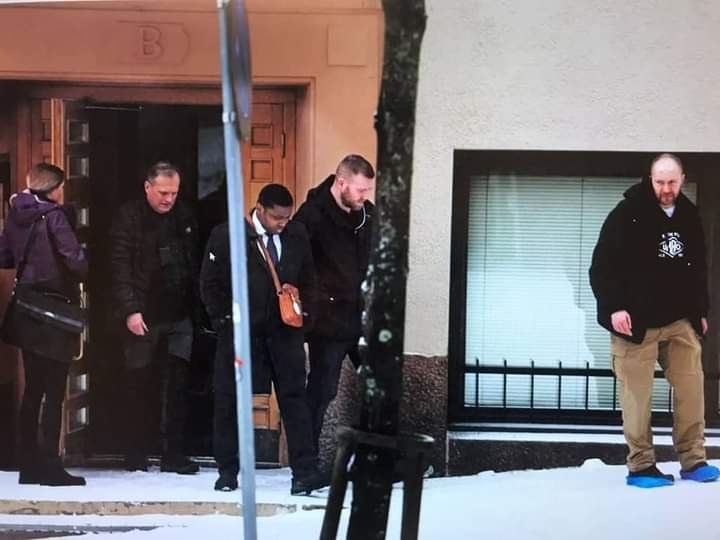
Ekpa was arrested by law enforcement officers in Finland in November 2024. He was subsequently sent to prison by the district court for “spreading terrorist propaganda on social media”.
In early May, the Finnish government filed terrorism-related charges against him at the Päijät-Häme District Court.
He was accused of “public incitement to commit a crime with terrorist intent” and “participation in a terrorist group”, linked to his efforts to establish an independent Biafra state.
Jukka Rappe, Finland’s deputy prosecutor-general, explained that authorities had been investigating whether Ekpa’s online activities amounted to criminal offenses under these statutes. In late May, the controversial Biafra agitator stood trial at the court, having been charged.
The prosecutor requested a minimum sentence of six years in prison, citing substantial evidence from Ekpa’s online communications and internet activity.
THE CONVICTION
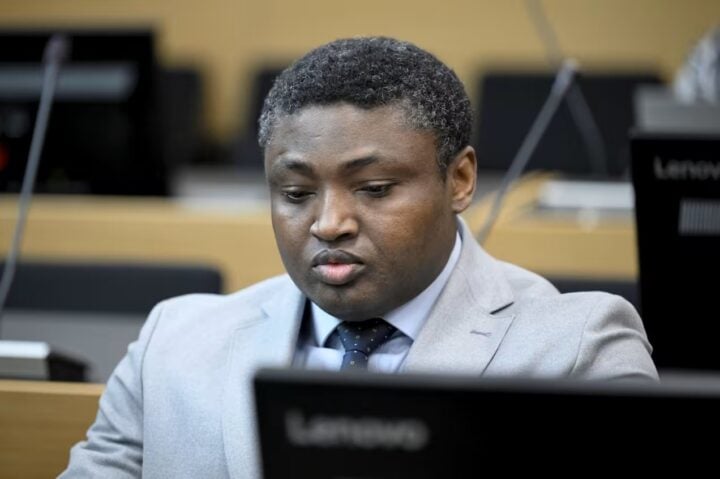
On Monday, the Päijät-Häme district court in Finland sentenced Ekpa to six years in prison after finding him guilty of promoting terrorist acts and involvement with a terrorist organisation.
The court ruled that between August 2021 and November 2024, he used his large social media following to incite unrest in Nigeria’s south-east, supplied groups with weapons, explosives, and ammunition through his network of contacts, and urged his followers on X to commit crimes. He was also convicted of aggravated tax fraud and violating the Attorneys Act.
‘CONVICTION REAFFIRMS RULE OF LAW BUT TOO LENIENT’
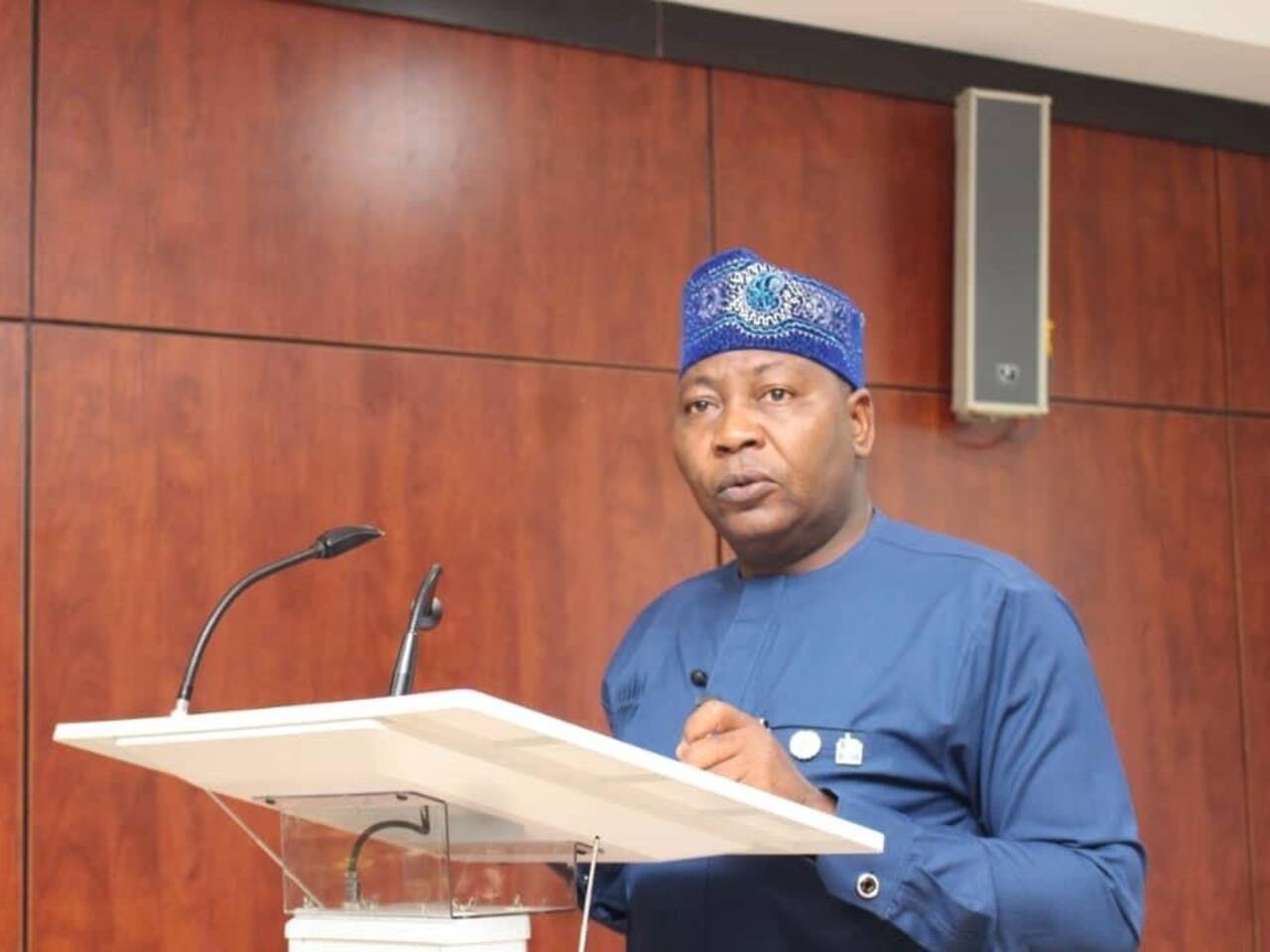
Sani Usman, former army spokesperson, described Ekpa’s conviction as a commendable and welcome development with broad implications for security in Nigeria.
He told TheCable that the judgement reaffirms the rule of law, sends a warning to Ekpa’s followers, and serves as a wake-up call to the judiciary to act decisively on issues that directly affect peace and stability.
The former army spokesperson said the ruling offers hope for strengthening security not only in the south-east but across the country.
However, Usman faulted the length of the six-year sentence handed down in Finland, saying it appeared “rather lenient” when weighed against Nigeria’s anti-terrorism laws and the scale of the atrocities linked to Ekpa’s activities.
He argued that a harsher penalty would have better reflected the gravity of the crimes and served as a stronger deterrent to others seeking to incite violence from abroad.
WHAT’S NEXT?
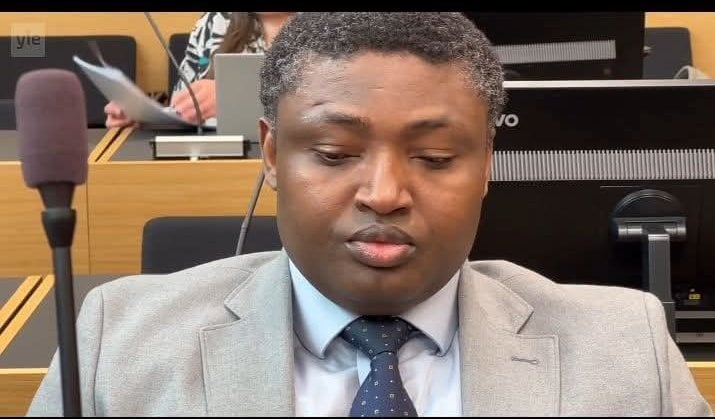
Ekpa’s conviction and sentencing mark a symbolic victory against propaganda and the instigation of violence in the south-east. For now, with his voice muted, the machinery of insecurity he helped fuel may slow down, offering the south-east a brief reprieve from fear and disruption.
Yet, the shadow of Nnamdi Kanu still looms. Still behind bars, he remains a rallying point. Ekpa’s fall may silence one agitator, but it does not extinguish the grievances that Kanu’s detention continues to represent. Another figure, whether openly or in the shadows, could yet rise to occupy the space.
The real uncertainty, therefore, lies in whether security agencies will pause to celebrate the verdict and, in the process, overlook the urgent need to recalibrate and strengthen their security strategy in the region.
In a chat with TheCable, Charles Omole, a national security expert, said the conviction of Ekpa should be a turning point for Biafran agitators to reassess their approach, arguing that history has shown violent separatist struggles — from the IRA in Northern Ireland to rebel groups in Colombia — eventually give way to democratic methods when militancy fails.
Omole suggested that IPOB and its sympathisers should abandon violence and pursue their objectives through peaceful, democratic channels, noting that Ekpa’s case sets a precedent, showing that separatist leaders abroad can no longer hide behind foreign borders while fuelling unrest in Nigeria.
‘SECURITY AGENCIES MUST NOT RELAX’

Omole cautioned Nigerian security agencies against treating Ekpa’s sentencing as the end of the crisis, explaining that while the sentencing may weaken diaspora funding streams that previously sustained the movement, it could also push agitators to seek local sources of financing, potentially making them more desperate and aggressive.
He warned that the weapons already in circulation and the loyal followers still active in the south-east remain a serious threat, urging the security forces to sustain pressure and use the moment as an opportunity to secure a lasting victory over the armed groups.
